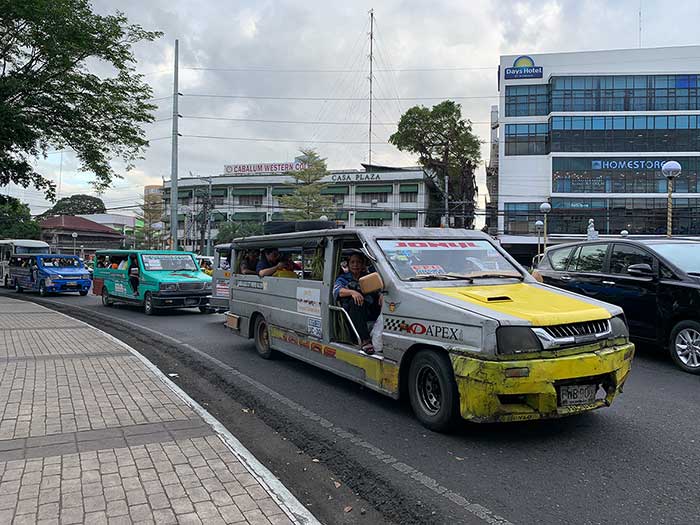
By Rjay Zuriaga Castor
Traditional jeepneys in Iloilo that have not consolidated were finally phased out on Wednesday, May 15, prompting operators to hope the government will reconsider the mandatory consolidation under the Public Utility Vehicle Modernization Program (PUVMP).
The 15-day extension granted by the Land Transportation Franchising and Regulatory Board (LTFRB) expired, leading to the revocation of franchises for at least 1,950 traditional jeepneys in Western Visayas.
Starting Thursday, May 16, unconsolidated jeepneys on the streets will be apprehended as their units are now deemed illegal or “colorum.”
Drivers operating these units risk a one-year suspension, a P50,000 fine, and a 30-day impoundment of their vehicles, according to the LTFRB.
Daily Guardian spoke with several drivers affected by the revocation.
Jose JC Mar Beso, who has been driving on the Ticud-La Paz route for ten years, shared, “I am still finding alternatives to survive and support my family since I do not have any other work.”
Beso, who earns P3,000 daily after expenses, is concerned about supporting his child in elementary school.
“I don’t want to enter into a cooperative or company since this jeepney unit is mine. It was my investment, and consolidating it would mean giving up my source of income,” he added.
Beso further expressed concern that even if he joined a cooperative, traditional jeepneys like his would eventually be phased out.
Arlene Ricanas, who has driven the La Paz-La Granja route for four decades, echoed similar concerns, noting the potential obsolescence of his jeepney.
“There’s nothing we can do if the government considers our units as colorum, but we hope we won’t be phased out from the streets since this is what supports our family’s financial needs,” Ricanas said.
With no qualifications for other jobs, Ricanas, who has used his earnings to support his family for over 40 years, added, “Apart from the sentimental value, we still have our grandchildren to support. I do not want my jeepney to be managed under a cooperative as it would feel like they are taking it away from us.”
He also hopes the government will provide subsidies to help drivers meet the modernization program’s requirements without imposing significant financial burdens.
For Robert Ventura, secretary-general of the No to PUV Phaseout Coalition in Panay, the fight continues.
“We will follow the government’s order only until May 15, but we will not stop protesting to bring us back to the streets because this is our only source of income,” Ventura said.
Billy Demafiles, although consolidated and currently plying the Leganes-La Paz route, has appealed to the president to halt the compulsory consolidation.
“We are appealing to the president to halt the implementation of compulsory consolidation so we can still ply our routes since it is our only job. Our families would starve if this is pushed through,” Demafiles said.
Demafiles is supporting his two children, one of whom is already enrolled in college, said he has been able to finance his first child’s education with his earnings as a jeepney driver, but he fears that his second child might have to stop schooling if he loses his job after May 15.
He further expressed frustration that the cooperative he has entered into often ignores the suggestions and sentiments of its members.
“We can’t even complain because they would retaliate by delaying the renewal of our permits,” he said.
He emphasized that traditional jeepney drivers like himself are not against modernization but are concerned about its implementation and its impact on their livelihoods.
The jeepney drivers share a resounding call to the president: to further study the PUVMP, especially the mandatory consolidation requirement, and adopt a more inclusive and supportive approach to the modernization program.



















